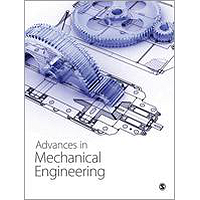 A professor specializing in the health of children and pregnant women has left her post at the University of Glasgow, and issued three retractions in recent months.
A professor specializing in the health of children and pregnant women has left her post at the University of Glasgow, and issued three retractions in recent months.
All three notices — issued by PLOS ONE — mention an investigation at the university, which found signs of data manipulation and falsification. Fiona Lyall, the last author on all three papers, is also the only author in common to all three papers; she did not respond to the journal’s inquiries.
According to the University of Glasgow, the affiliation listed for Lyall, she is no longer based at the university. When we asked about the circumstances of her departure, the spokesperson told us the university has a “commitment to confidentiality,” but noted:
Continue reading Glasgow professor leaves post amidst multiple retractions
 This one gave us pause: A journal recently removed a 1992 paper, providing only a terse explanation — “The above article has been removed at the author’s request.”
This one gave us pause: A journal recently removed a 1992 paper, providing only a terse explanation — “The above article has been removed at the author’s request.”  The authors of a 2018 paper on how noisy distractions disrupt memory are retracting the article after finding a flaw in their study.
The authors of a 2018 paper on how noisy distractions disrupt memory are retracting the article after finding a flaw in their study.  When a researcher submitted a manuscript to a journal about multimedia tools, she was frustrated to wait 13 months for the journal to make a decision — only to have it reject the paper outright. So imagine how she felt when, days after the paper was rejected, she saw the journal had published a plagiarized version of the paper by a group of different authors.
When a researcher submitted a manuscript to a journal about multimedia tools, she was frustrated to wait 13 months for the journal to make a decision — only to have it reject the paper outright. So imagine how she felt when, days after the paper was rejected, she saw the journal had published a plagiarized version of the paper by a group of different authors. When
When 
 Many publishers have been duped by fake peer reviews, which have brought down more than 600 papers to date. But some continue to get fooled.
Many publishers have been duped by fake peer reviews, which have brought down more than 600 papers to date. But some continue to get fooled. Researchers have retracted a 2015 Nature paper about the molecular underpinnings of immune function after discovering they could not replicate key parts of the results.
Researchers have retracted a 2015 Nature paper about the molecular underpinnings of immune function after discovering they could not replicate key parts of the results. Last year,
Last year,  Last month, the
Last month, the